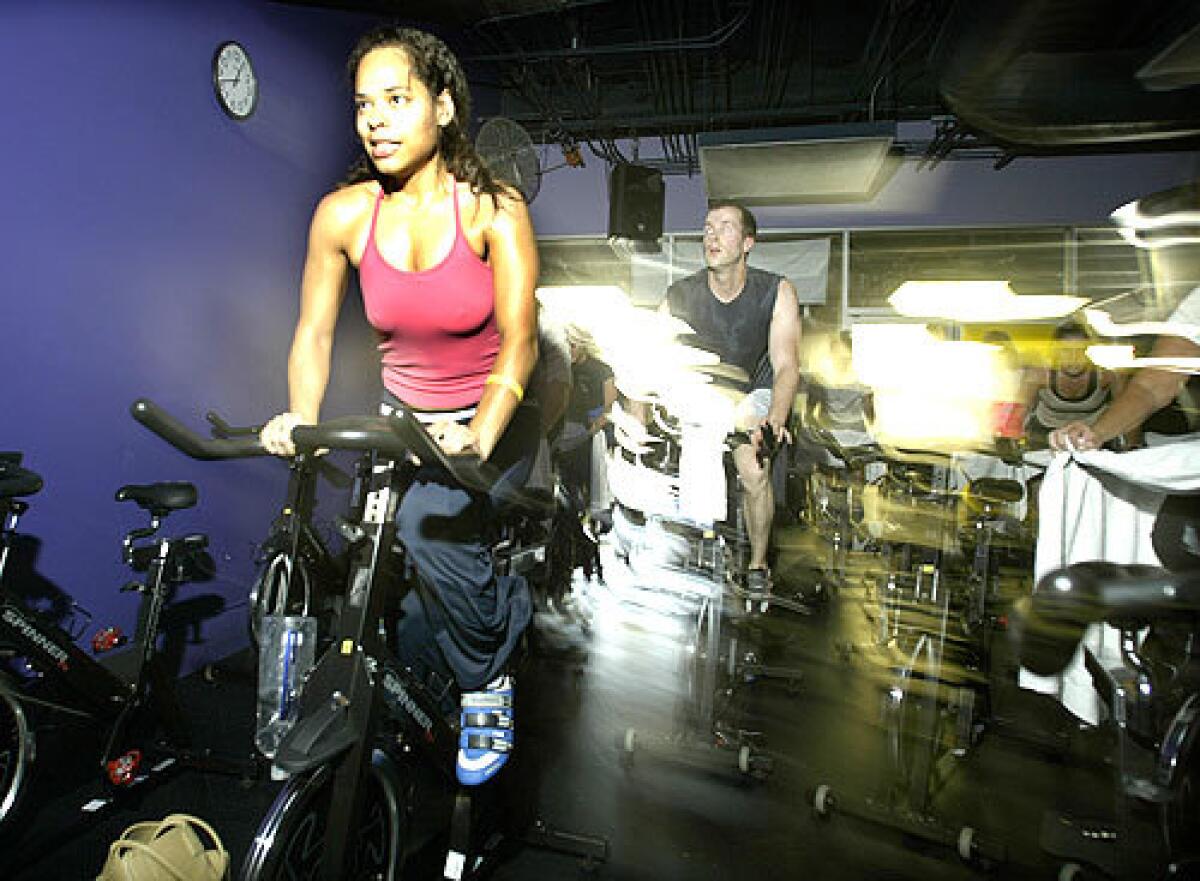Keep exercising those bones

- Share via
Can cycling (indoor or outdoor) be a weight-bearing exercise? When I do Spinning classes in the gym, we pedal in a standing position much of the time. I have been diagnosed with osteopenia and have been told weight-bearing exercises may help slow down the loss of bone tissue. And I wonder whether cycling works in this way.
LORRAINEHuntington Beach
Cycling can be considered a weight-bearing exercise, but keep in mind that not all forms of cycling are created equal. When you stand up and pedal in your group cycling class, you’re putting more stress on the legs, which in turns makes bones stronger, according to Dr. Ronald Glousman, sports medicine specialist and orthopedic surgeon at Kerlan-Jobe Orthopaedic Clinic in Los Angeles. But when you sit down, “You’re supported by the seat,” he says, “and if that’s supporting your body weight, you won’t have much transfer of that stress to the pelvis, spine or the legs.”
Bones are like muscles, says Glousman, and they get stronger with reasonable amounts of stress. Stress refers to loading the body with pressure — that can be via impact-type exercises such as running or gymnastics, or by strength training with weights. When done in a progressive manner that doesn’t overtask the bones, he says, the body reacts by supplying collagen, which then gets calcified, making the bones denser, stronger and more resistant to osteopenia, a milder form of bone loss than that associated with osteoporosis.
While sitting down on the bike, you can increase the pressure by pedaling harder (with more resistance), or going uphill if you’re outside. You can also vary your routine with other weight-bearing activities such as weight workouts, walking or using the elliptical trainer, providing you don’t have any injuries that would cause further problems.
— Jeannine Stein



